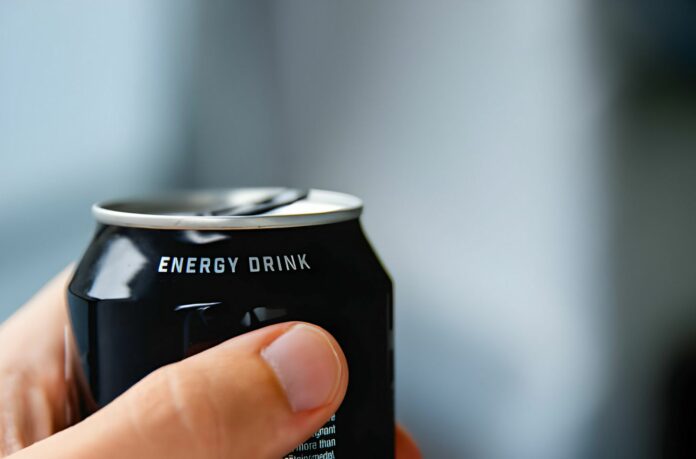Energy drinks may be more dangerous than caffeine alone – and this may the first sign as suggested by new findings.
There is a significant gap between marketing and science. However, in the lucrative beverage market, these differences become confusing.
People have more non-alcoholic drink options than ever before, ranging from classic carbonated drinks to new brands that connect their products with energy, alertness, physical fitness, and hydration.
However, most buyers are unsure if the product promises are accurate. The truth is that sales are soaring.
According to the sources, energy drinks include an average of 150 mg of caffeine per litre, as well as various amounts of sugar, vitamins, minerals, and amino acids.
Energy drinks, marketed as mental and physical pick-me-ups, are popular among college students and young people.
Energy Drink Side Effects You Need to Know
And a large-scale Norwegian investigation published in BMJ Open reveals a worrisome connection between energy drink consumption and sleep problems among young people.
And the greater the frequency of use, the less hours of sleep the students got each night. However, even the occasional can (1-3 times a month) is associated with an increased risk of disrupted sleep, according to the results.
While there is some evidence that energy drinks may impact sleep quality, the specific aspects of sleep affected and whether there are gender-specific differences remain unclear.
To delve deeper into these questions, researchers enlisted 53,266 individuals aged 18 to 35 in the Students’ Health and Well-being Study (SHOT22 study). This study represents the latest phase of a comprehensive national survey involving college and university students in Norway.
Participants were queried about their energy drink consumption frequency, with response options including daily, weekly (once, 2-3 times, 4-6 times), monthly (1-3 times), and seldom/never. This extensive data collection aims to provide a clearer understanding of the nuanced relationship between energy drink intake and various aspects of sleep.
They were also given comprehensive questions regarding their regular sleep habits, such as when they went to bed and when they awoke, how long it took them to fall asleep (sleep latency), and how awake they were after sleeping. Sleep efficiency was determined by dividing total nightly hours of sleep by time spent in bed.
Insomnia was described as having difficulty falling and staying asleep, as well as getting up early on at least three evenings per week, for at least three months.
The survey findings revealed strong sex disparities in energy drink usage habits. Women, for example, were more likely than males to report never or seldom taking energy drinks (50% vs. 40%).
Of those who answered they drank these drinks, 5.5% of women said they drank them 4-6 times per week, and slightly more than 3% said they drank them every day. Men had equivalent numbers of 8% and 5%, respectively.
However, there was a strong dose-response relationship for both sexes between energy drink use and fewer hours of sleep.
Men and women who claimed daily intake slept around half an hour less than those who indicated occasional or no consumption. Similar links were found between waking up after falling asleep and taking longer to fall asleep.
The Dark Side of Energy Drinks
Increased intake was associated with an increase in both nocturnal waking time and time needed to fall asleep, indicating lower sleep efficiency.
Insomnia was significantly more prevalent among women and men who reported daily usage than those who reported occasional or no consumption (51% vs 33% for women and 37% vs 22% for men).
Overall, higher energy drink use was linked to an increased risk of sleep disorders across all variables investigated, with the highest connections shown for short sleep duration.
Men who claimed daily intake were more than twice as likely to indicate they slept less than 6 hours per night as those who reported no or just an occasional energy drink, while women were 87% more likely.
However, even those who reported drinking an energy drink 1-3 times per month were more likely to have sleep issues.
Being an observational study, firm conclusions regarding causation cannot be drawn. The researchers recognize the potential for reverse causality, suggesting that energy drink consumption might result from poor sleep rather than the other way around, which could clarify the observed associations.
Crucially, the study lacks data on the timing of consumption and precise quantities ingested. Additionally, reliance on self-assessment rather than objective measures for both consumption and sleep patterns adds a layer of uncertainty to the findings.
Despite these limitations, the researchers assert, “The results from the current study show that there is a robust association between the frequency of [energy drink] consumption and the different sleep parameters.
“Identifying modifiable risk factors for sleep problems among college and university students is vital and our results suggest that the frequency of …consumption could be a possible target for interventions.”
Image Credit: iStock
